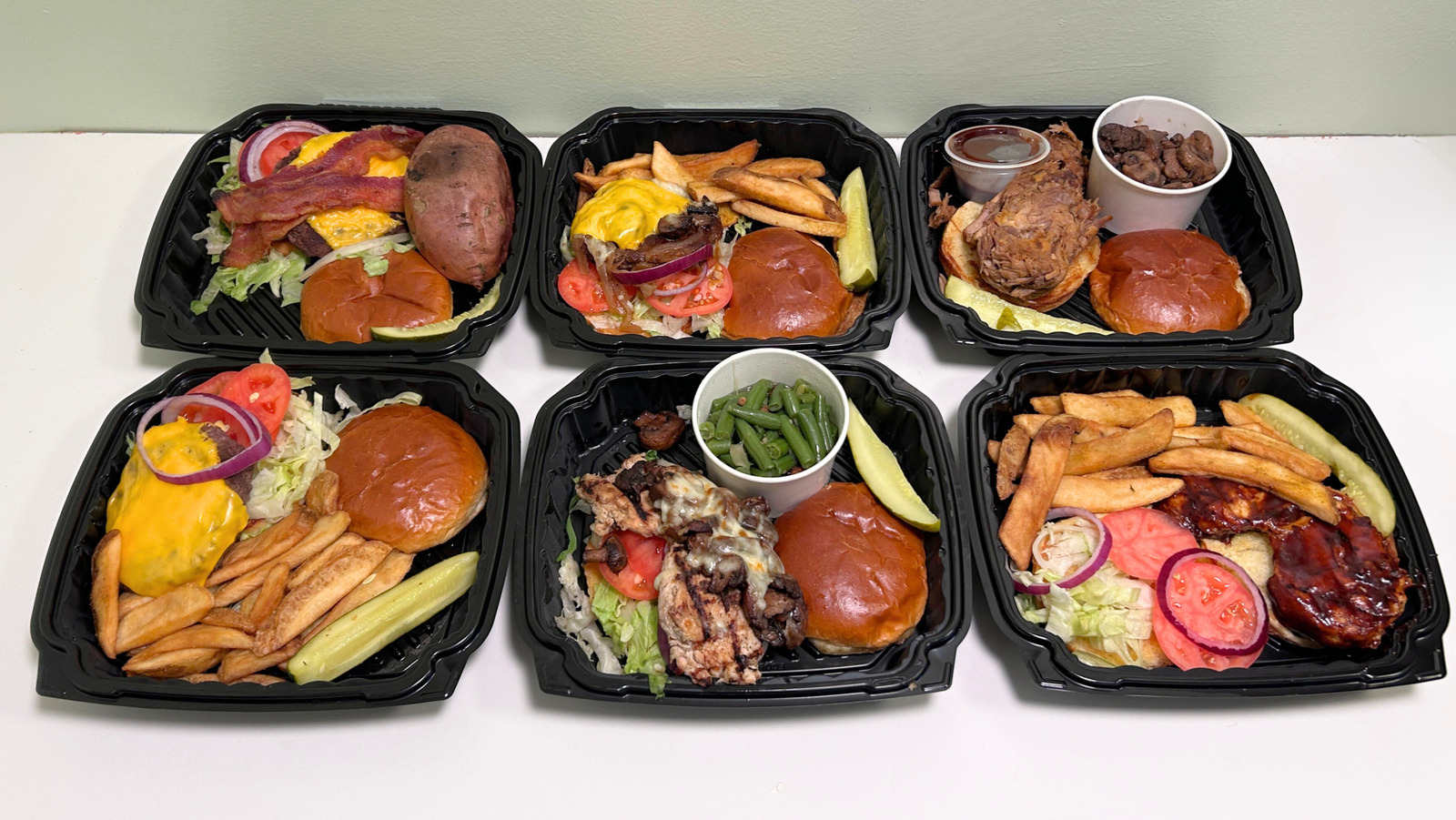 Kitt, ready for duty. Photographs by Kevin Wiles, Jr.
Kitt, ready for duty. Photographs by Kevin Wiles, Jr.
Bill Cushing was exercising in his home gym when he got the call. It was a little before 1 p.m. on 4 June 2021, and the Braintree, Massachusetts, police officer thought he could get a workout in before his shift started. When Cushing suddenly heard sirens, though, and his phone lit up with the Braintree Police Department number, he knew his day was about to start early. A domestic violence call had come in, and the department needed Cushing and Kitt, his police dog for the past decade, to help find the suspect. Cushing rushed to put on his uniform. Kitt, an 11-year-old German shepherd–Belgian Malinois mix, snapped to attention. It was time to go to work. Cushing drove toward the scene on McCusker Drive, listening to the radio chatter and speeding up as he heard the action escalate. The suspect possibly had two firearms, was on foot and had fled into the woods behind a massive apartment complex. Cushing knew the spot. Those woods had been the site of many police incidents where he and Kitt had tracked assailants in the past. By the time Cushing whipped into the parking lot at the edge of the woods, other officers were there. One directed Cushing and Kitt to the last known spot where the fugitive had been seen. Kitt immediately picked up the scent, and they were off, charging into the brush. Kitt tugged forcefully at his leash, almost dragging Cushing into a sprint. Soon, Kitt leaped towards a large rock, which let Cushing know that behind it, the armed man they were after was hiding and ready to pounce. Ten years earlier, on a warm July day in 2011, Cushing climbed into a van with Mark O’Reilly, the master K-9 trainer from the Massachusetts Department of Correction. They headed toward a police-dog training centre in Bethany, Connecticut. Cushing didn’t yet know much about being a K-9 officer. He’d been a beat cop for the past six years. But now, in his early 30s, he wanted more action and to make a greater contribution to keeping his hometown safe. He believed that becoming a K-9 officer was the way to do it. Not every cop can become a K-9 officer. Candidates need to be hardworking, incredibly fit and, most of all, catch the attention of the police chief. Once officers are selected, they must undergo hundreds of hours of specialized training before getting to work with a dog. It’s an elite circle. At the training facility, Cushing and O’Reilly emerged from their vehicle to a chorus of dogs barking inside the long white building. One of the facility’s trainers came out with a dog for their inspection. His name was Kitt. Kitt was a mangy-looking mutt with matted hair, big pointy ears that stood straight up, and a funny look in his eye. Cushing didn’t like what he saw. O’Reilly, though, wasn’t paying attention to Kitt’s looks but to the way he strode out of his kennel as though he belonged. He was just 11 months old and hadn’t been trained to track scents. Yet he immediately spotted a five-gallon bucket with some toys in it. He attacked the bucket with a vengeance, toppling it over and thrashing it around. “We’ll take him,” O’Reilly said. Ah, geez, Cushing thought. Now this funny-looking dog with no tracking experience was coming home with him. The next 16 weeks served as a boot camp for Cushing and Kitt. Each morning, the pair headed out for intensive eight- to 12-hour training sessions, tracking through vast fields, empty buildings and surrounding forests. O’Reilly told Cushing that he had to learn to trust his dog, even when Cushing had his doubts. Still, the most important part of the training took place at home. Cushing learnt that for their partnership to be successful, Kitt needed to believe that Cushing was the only person who would provide him with food and water, and that his own survival depended on Cushing’s safety. So for the first few weeks, Cushing fed Kitt only by hand. He would serve him a water bowl, and if Kitt didn’t drink, he would remove it. Cushing became everything to Kitt. It was mutual. Cushing didn’t have a wife, girlfriend or children. Kitt was the focus of his profession, his home life and his affection. About halfway through their training, Cushing and Kitt went to the prison complex for a long, challenging tracking test. A trainer, posing as a suspect—clad in a protective bite suit—hid hundreds of yards away. Kitt picked up his scent and aggressively pursued. When he spotted the trainer, Kitt leaped at him, flying 10 feet through the air and nearly knocking him down to the ground. Whoa, Cushing thought. This dog actually works. “Congratulations,” O’Reilly told Cushing. “You are cleared hot,” which meant that Kitt was ready to hit the streets. Kitt and Cushing’s first assignment was to track a bank robber. Kitt picked up a scent at the bank and led Cushing down the road, where they discovered some cash that the robber had dumped before fleeing in a getaway car. Kitt’s discovery helped other officers pick up the trail and capture the robber. Many successful assignments followed. Sometimes, when the tracks were long and gruelling, Cushing wondered if Kitt was still on the scent. Then he would hear O’Reilly’s voice in his head: Trust your dog. So Cushing did, and Kitt never let him down. Cushing soon grew to rely on Kitt in other ways too. If Cushing had a personal problem, he’d talk to Kitt about it. If Cushing was having a rough day, Kitt would intuitively rest his head on him. Before Cushing knew it, Kitt wasn’t just his partner; they were best friends. In the early hours of a March day in 2016, Cushing was asleep when his phone rang. It was his lieutenant. A man had allegedly threatened the mother of his two children and was on the loose, drunk and carrying a knife. “We need you and Kitt to find this guy,” the lieutenant ordered. Kitt was already up and standing at attention. He seemed to sense that they were going to work. Kitt barked as they drove with sirens screaming and lights flashing toward the neighbourhood where the suspect had last been seen. When they arrived, Kitt picked up the scent of his target, 44-year-old Robert Dussourd. Kitt then led Cushing and other officers through several backyards, and onto a street where Kitt stopped and attempted to dive under a parked car. The officers then knew that was where the man they were after was hiding. Cushing gripped Kitt’s leash in his left hand, shining his flashlight underneath the vehicle to see the fugitive. The round beam of light passed over Dussourd’s face. “Come out, man,” Cushing said to Dussourd. Silence. “Hey, buddy, I don’t want my dog to bite you,” Cushing added. “Just come out, give up.” Kitt sat still, riveted, waiting for Cushing’s command to pounce. Then Dussourd poked his head up from under the car and looked directly at him. Dussourd allegedly said, “I’m going to kill you.” An instant later, the suspect darted out from under the car, pulled a large kitchen knife out of his pants, and advanced toward Cushing and Kitt. “Drop the knife!” Cushing recalls yelling. “My dog’s gonna bite you!” Dussourd kept moving toward them, leaving Cushing no choice. He released his grip on the leash. Kitt leaped through the air and sank his teeth into the suspect’s right hip. Dussourd wailed and began flailing his knife. Cushing was terrified that he would stab Kitt. Enraged, Dussourd advanced, stabbing at the air just inches from Cushing. Cushing sensed it was a shoot-or-be-killed situation, but feared he might strike Kitt while trying to hit the suspect. He fired two quick rounds, and Dussourd fell to the ground, with Kitt still biting him. Cushing rushed over and grabbed Kitt around the neck to release his bite. Other officers immediately attempted CPR on Dussourd, but it was too late. Dussourd later died at the hospital. Wanting to make sure that Dussourd hadn’t stabbed Kitt, Cushing inspected the dog’s body for injuries. When he found none, he bear-hugged Kitt, burying his face in his fur. “Good boy, Kitt,” he said. “We’re good, we’re good.” Just a month after the shooting, Cushing and Kitt found themselves in the same neighbourhood, tracking another domestic-violence suspect. Cushing was on high alert. His breathing was heavy, and his heart pounded. When Cushing stepped on a tree branch and it snapped, he drew his weapon. Another officer turned to look at him and asked if Cushing was OK. Cushing had assured his chief that he was ready to return to work. But now, back in the field, drawing his gun at imaginary bad guys, it was obvious to Cushing that he wasn’t OK at all. Over and over again, he replayed in his head what had happened the night he’d killed Dussourd. He was sure he had done everything right, but he couldn’t stop thinking about Dussourd’s children, who had lost their father. Cushing knew he needed help. He began going to a therapist. He also consulted Kitt’s veterinarian, who said that Cushing’s emotions were travelling right down the leash into Kitt. Cushing knew he had to work hard to heal, not just for his own sake but also for Kitt’s. After several weeks of therapy, they went back to work and continued to excel. Then, in 2018, Cushing started dating a woman. She moved in with Cushing and Kitt, and in June 2019, their daughter was born. Cushing worried that Kitt might react poorly to a baby in the house—in their house. After all, Kitt was so protective of Cushing and their territory. But just as Kitt had seemed to feel Cushing’s fear and trauma, Kitt seemed to also feel his love. Kitt played with the baby. She fell asleep resting on him. He wouldn’t let anyone other than Cushing and his girlfriend near her. As for Cushing, he took to parenting like a natural. After all, Kitt had taught him how to care for another being, how to nurture, and how to put someone else’s needs before his own. As parenting became a priority, Cushing began to work less. In 2020, Cushing and his girlfriend welcomed their second daughter, and that meant turning down even more assignments. Soon after, the call for McCusker Drive came in. On 4 June 2021, Kitt yanked Cushing through thorny woods with two other officers, Richard Seibert and Matthew Donoghue, following. They were chasing 34-year-old Andrew Homen after a woman had called the police, saying he had tried to choke her and put a gun to her head before fleeing. Cushing could tell by the purpose with which Kitt was pulling him that Homen was hiding somewhere nearby. Suddenly, Kitt stopped and jumped up and down near a 4-foot-tall rock. Kitt was telling him Homen was behind it. “Show me your hands!” Cushing shouted. “Show me your hands!” Homen emerged with his gun drawn. “Drop the gun,” one officer shouted. Kitt leaped at Homen, aiming to sink his teeth into him so Cushing could make the arrest. Instead, Homen fired three times, and Kitt flew backward, landing on the ground. Cushing raised his weapon, fired at Homen, and thought he had hit him. Homen doubled over and started backing up, but continued firing at the officers, who fired back at him. Cushing ran out of bullets. He tried to reload but couldn’t move his left arm. When he looked down, he knew why. It looked like his arm had been partially blown off. “I’m hit!” he shouted before falling onto the ground, next to Kitt. Seibert unleashed a volley of shots from his rifle at Homen—pop, pop, pop. The woods suddenly went quiet. Homen was mortally wounded, and Cushing was still lying on the ground, his left arm in searing pain. He recalls turning his head to the side to find himself face to face with Kitt. He stared into his best friend’s eyes and watched as the life drained out of them. Cushing feared he wasn’t far behind. He thought of his young daughters. If he died, they wouldn’t remember him. Then Seibert tied a tourniquet around Cushing’s arm. “He shot my dog,” Cushing told him. “He’s gone, Bill,” Seibert said. Cushing heard the unmistakable sound of police gear clinking and clanking. Officers placed Cushing onto a stretcher. As they carried him out of the woods and loaded him into an ambulance, Cushing saw an officer crying. The door slammed, sirens blared and the driver sped toward the hospital. Staring at the ceiling, Cushing tried to focus. He thought of his daughters. I’m still alive, he told himself. I’m not going to die. One week later, after undergoing a handful of reconstructive surgeries, Cushing went home with his left arm in a sling and a full police procession. When they pulled into the driveway, Cushing had to work up the nerve to enter his home. Everything was still there: Kitt’s bowl, the bed that still smelled like Kitt, dog hair on the couch. Everything but Kitt himself. Ten days later, an officer drove Cushing to the Cartwright Funeral Home in Braintree. Staff escorted Cushing into the viewing room, where Kitt’s body lay in a coffin draped in an American flag. Cushing pulled up a chair and sat down, lowering his head onto Kitt’s body, and wept. For one last time, it was just the two of them. Cushing thanked his partner for everything he had done for him, including taking those first bullets and buying the officers precious extra seconds that had saved Cushing’s life. Then he wiped his tears. It was time for Kitt’s final send-off. Dozens of police from across the state watched as six K-9 officers—led by O’Reilly—placed the dog’s casket into the back of a hearse. A procession of police vehicles slowly made its way to Gillette Stadium, where O’Reilly and the other pallbearers carried Kitt’s casket onto the turf, which was painted with a large, white message that read: “K-9 Kitt, End of Watch, 6-4-21.” As ‘Taps’ solemnly echoed across the stadium, officers removed the flag from Kitt’s casket, folded it into a tight, neat triangle, and presented it to Cushing. Then all the officers lined up and paid their respects to Kitt. In the months that followed, Cushing began the long process of rehabbing his left arm, unable to do his job without full use of his limb. Instead of pouring his energy into Kitt and police work, he opened a foundation in Kitt’s name. It provides K-9 teams with protective gear, including bulletproof vests for dogs, in hopes of saving the life of a canine as brave as Kitt. From Boston Magazine (10 August 2023). © 2023 Boston Magazine, bostonmagazine.com. Partners, Cushing and Kitt quickly grew close.
Partners, Cushing and Kitt quickly grew close. Kitt’s nose was unfailing when searching for evidence or a suspect.
Kitt’s nose was unfailing when searching for evidence or a suspect.
 Kitt’s other job: big brother.
Kitt’s other job: big brother. A statue of Kitt stands alert at the police memorial.
A statue of Kitt stands alert at the police memorial.

 11 months ago
41
11 months ago
41











 English (US) ·
English (US) ·